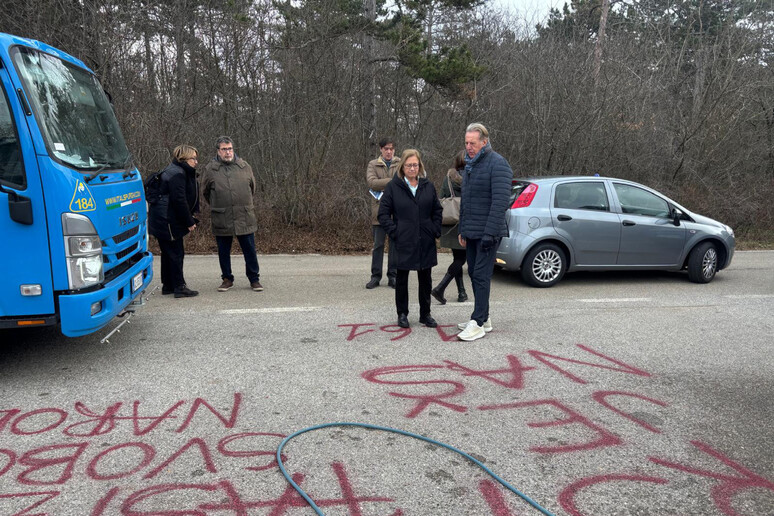Premier Giorgia Meloni said Saturday
that the vandalism of the site of a memorial to the victims of
the Foibe massacres, the mass killings and deportations by
Tito's Yugoslav Partisans of Italians living in the area that
stretches from the Trieste zone in Italy's Friuli Venezia Giulia
region across the Istrian peninsula to Dalmatia in Croatia
during and immediately after WWII, was an affront the whole of
Italy.
The area of the memorial of the Basovizza Foiba, near Trieste,
was defaced with graffiti declaring 'Trst je nas' (Trieste is
ours) and two other statements in Slovenian, two days before
Italy's Foibe Remembrance Day.
"The Basovizza Foiba is a sacred place, a national monument, to
be honoured with silence and prayer," Meloni said.
"Offending Basovizza, with repugnant writings that recall
dramatic pages of our history, does not only trample on the
memory of the martyrs of the Foibe, but it is also an outrage
the entire nation.
"What happened is an act of unprecedented gravity, which cannot
go unpunished".
Most of the Foibe were natural pit-like karst sinkholes
typically found in Friuli Venezia Giulia and the Slovenian part
of Istria into which victims were thrown, sometimes alive.
The Basovizza Foiba, however, was a mineshaft.
It is estimated that as many as 15,000 Italians largely, but not
always, identified with Fascism were tortured or killed by
Yugoslav communists who occupied the Istrian peninsula during
the last two years of the war.
Many of the victims were thrown into the narrow mountain gorges
during anti-Fascist uprisings in the area and the exact number
of victims of these atrocities is unknown, in part because
Tito's forces destroyed local population records to cover up
their crimes.
Many Italians were forced to flee their homes because of the
massacres.
Italy established Foibe Remembrance Day only in 2004, as the
tragedy had been swept under the carpet by anti-Fascists in the
postwar years.
ALL RIGHTS RESERVED © Copyright ANSA











